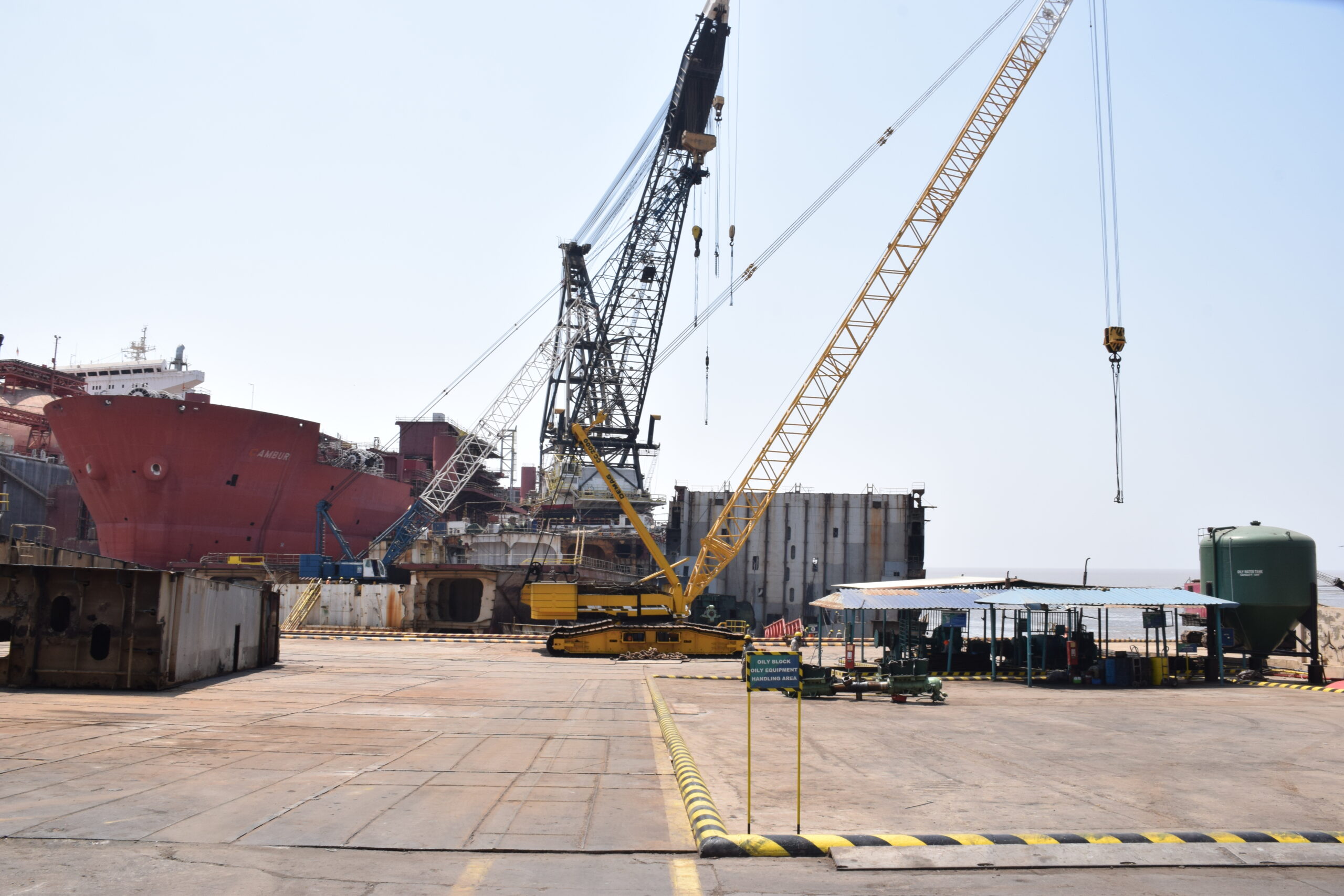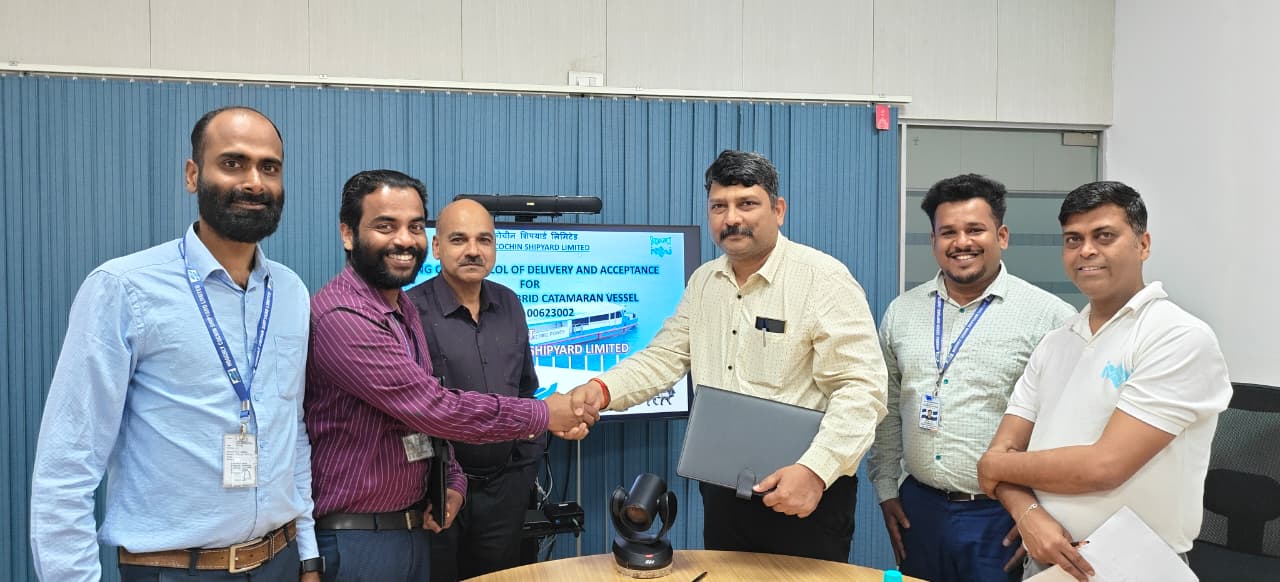India Courts South Korean Shipbuilders to Boost Shipbuilding Sector
India is setting its sights on becoming a major player in the global shipbuilding market, aiming to transform its nascent industry into a robust sector capable of producing state-of-the-art vessels. As part of this ambitious plan, a high-level delegation from the Ministry of Ports, Shipping, and Waterways recently visited South Korea, the world’s second-largest shipbuilding nation, to explore potential collaborations and joint ventures with leading shipbuilders such as HD Hyundai Heavy Industries, Hanwa Ocean, and Samsung Heavy Industries.

Understanding South Korean Excellence
The delegation, led by T.K. Ramachandran, Secretary of the Ministry of Ports, Shipping, and Waterways, included prominent officials like R. Lakshmanan, Joint Secretary overseeing shipbuilding, Madhu Nair, CMD of Cochin Shipyard Ltd, and Capt. B.K. Tyagi, CMD of Shipping Corporation of India Ltd. Their mission was to gain insights into South Korea’s advanced shipbuilding techniques and explore avenues for collaboration.
“South Korean shipyards have consistently demonstrated high productivity and efficiency,” said an official privy to the discussions. “Their expertise in building specialized vessels such as LNG carriers, Floating Storage Regasification Units (FSRUs), and large crude carriers is something India can learn from.”
Bridging the Gap
India’s shipbuilding industry is currently limited to constructing small and medium-sized vessels. Despite possessing the capability to build conventional ships, Indian shipyards lag in producing larger and more complex vessels like Very Large Crude Carriers (VLCCs) and ultra-large container ships. Additionally, Indian shipyards face challenges such as longer construction timelines, higher lead times for procuring machinery, and limited infrastructure for large-scale production.
These limitations significantly impact the cost-effectiveness and competitiveness of Indian shipbuilders on the global stage. To address these gaps, the government is seeking technology transfers, training, and infrastructure development through partnerships with South Korean firms.
A Roadmap for Collaboration
The meetings in South Korea were described as highly positive, with South Korean companies expressing strong interest in forging ties with their Indian counterparts. Formal agreements are expected to be signed during the visit of Sarbananda Sonowal, Union Minister of Ports, Shipping, and Waterways, to South Korea in March next year.
“The focus will be on areas where Indian capabilities need enhancement, such as ship design, real-time planning, production management, and digitalization of shipyard operations,” an official explained. “Training in South Korean shipbuilding methods and project monitoring techniques will also be a crucial part of the collaboration.”
Pilot projects between Indian and South Korean shipyards are on the table, aiming to implement best practices from South Korea’s shipbuilding sector. Successful pilots could then be replicated across other Indian shipyards.
Financial and Technological Support
To support the modernization and expansion of India’s shipbuilding sector, the government is considering various financial incentives. These include soft loans from South Korean lending agencies like the Export-Import Bank of Korea (KEXIM) to develop shipyard infrastructure. Additionally, fostering collaborations with South Korean equipment manufacturers could help build a robust supply chain within India.
The government is also working on a new shipbuilding policy, which will be presented to the Cabinet soon. The policy includes introducing a ship recycling credit note scheme and subsidies for building different types of vessels, with higher rates for specialized and green ships.
Key Highlights of the Proposed Policy:
- Ship Recycling Credit Note Scheme: Fleet owners, both domestic and international, would receive credit notes equivalent to 40% of a ship’s scrap value when dismantled at Indian yards. These notes could be used to offset the cost of new vessel construction in India.
- Subsidies for Shipbuilding: Indian shipyards could receive subsidies ranging from 20% for standard ships to 30% for green vessels and those employing futuristic technologies.
- Maritime Development Fund (MDF): An initial corpus of ₹25,000 crore would provide equity support for new ventures and the expansion of existing shipyards.
Seizing Global Opportunities
India currently holds less than 1% of the global shipbuilding market. However, the country has set ambitious targets to break into the top 10 shipbuilding nations by 2030 and the top 5 by 2047. This push aligns with the global shift towards greener shipping solutions, which is expected to drive the construction of over 50,000 new vessels in the next three decades.
“Given India’s growing role in global seaborne trade, there is immense potential to expand our shipbuilding industry,” an official said. “The idea is to produce more ships domestically to meet the increasing demand, thereby boosting our service GDP and generating employment.”
By capturing even a modest share of the global market—about 20-25%—India could potentially tap into a $237 billion shipbuilding opportunity over the next 25 years.
Building a Comprehensive Ecosystem
The government’s strategy is not just limited to increasing ship production but involves creating a comprehensive ecosystem that includes ship design, manufacturing, and ancillary industries. Three maritime clusters are planned in Andhra Pradesh, Gujarat, and Odisha to support this initiative.
“Shipbuilding is integral to India’s vision of becoming a strong maritime and economic power,” the official emphasized. “We aim to strengthen every part of the value chain, from design to delivery, to make Indian shipyards globally competitive.”
The Path Ahead
As India gears up to become a major shipbuilding hub, its partnership with South Korea could prove pivotal. The collaboration aims to blend South Korea’s technical prowess with India’s growing industrial base, creating a win-win situation for both nations. With the right policy support, financial incentives, and international partnerships, India is poised to reshape its shipbuilding sector and make a significant mark on the global stage.
Author: shipping inbox
shipping and maritime related web portal








